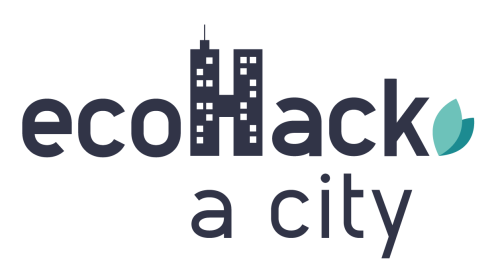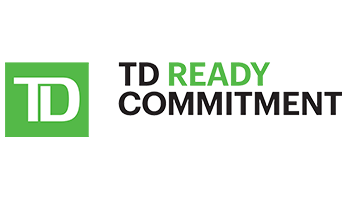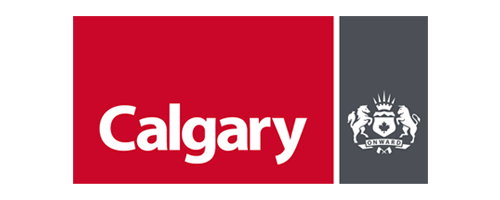CITY OF CALGARY, ALBERTA – November 9, 2021
In 2020, buildings accounted for 67% of Calgary’s community-wide greenhouse gas emissions. With the target of getting to net zero by 2050, emphasis on this sector and how to reduce building emissions is key for the City of Calgary.
Public panel event outcomes
The final public panel of the 2021 edition of the EcoHack-a-City program was held on November 9th. The invited speakers pointed out that retrofitting buildings has significant impact on reducing GHG emissions but also showed that the impact of building management and operation should not be underestimated.
Betsy Agar, Senior analyst at the Building and Urban Solutions program at Pembina Institute, began by assessing the situation and showed that inaction and standard retrofits are not an option. Deep retrofits are needed not only to get to net zero, but to improve indoor air quality, which will result in health improvements for residents. With the new reality of frequent climate-related disasters, buildings also need to be adapted and made more resilient to better protect their residents. Barriers to undertaking deep retrofits exist but can be overcome with renewable energy, or advanced technology like the Dutch company EnergieSprong employs. These projects will have the added social benefit of creating local jobs.
Deep retrofits are already happening. Our second speaker, Graham Twyford Miles, Director of the Energy Planning and Innovation Department at the University of Calgary, presented a project on the university campus, the MacKimmie Complex. The buildings were performing poorly energetically speaking, partly because of thermal breaks (heat leaking outside the building) in the original structure. Creating a double skin facade wrapped around the outward concrete structure eliminated them, and reusing the existing building led to time and cost savings. The solar panels installed are projected to reduce energy use and GHG emissions associated with operating the facility by 90%.
According to Lloyd Suchet, Executive Director of the Building Owners & Managers Association (BOMA) Calgary, building owners and managers can even have an impact on energy and carbon emission reduction before any deep retrofit projects start. For example, the BOMA BEST program accompanies building owners and managers through benchmarking and helps them improve in these areas, along with water consumption, waste management and the human experience. Benchmarking may be the first tool buildings need to move towards sustainability. BOMA BEST helped buildings throughout Canada reduce their energy consumption by 25%. In terms of carbon emission reduction, since the program began an 84% reduction in GHG emissions was made nationwide.
Potential Solutions
The leading question for the Design Thinking training that followed was: How might we achieve deep retrofits in the commercial high rise building sector (including mixed use of commercial and residential) across Calgary to reach net zero for buildings by 2050? The work of the two groups combined into one clear roadmap for the City of Calgary, from benchmarking to the standardization of a new approach to retrofits through demonstration projects.
Benchmarking was presented as an important tool from an operational and building management standpoint during the public panel and again during the training, from the building retrofit perspective. Benchmarking has the potential to be a powerful storytelling tool to share successes and learning points and show that retrofitting is an inclusive process, from residential to commercial buildings. Storytelling, in turn, fosters education to initiate a mindset shift among building owners and operators, as well as the public.
To continue carrying the deep retrofit process forward, demonstration projects are essential in creating a blueprint with standardization potential. The projects would minutely detail all the steps from procurement to project delivery, specifications, technicalities, and lessons learned, and would bring together expert stakeholders within the field. Innovative concept design methodologies would be included, like the Integrated Project Delivery (IPD) methodology which allows the share of risks and benefits with partners leading to more efficient conversations and decision-making.
Demonstration projects are important, however, standardization needs to come next. The standard targets and goals for Energy Use Intensity (EUI), Thermal Energy Demand Intensity (TEDI) and National Energy Code for Buildings (NECB) need to be scalable to different building archetypes. Standardizing the existing certification programs, like the Passive House Certification or the LEED certification, and reducing the offer to a couple of certifications widely accepted by communities and cities across Canada will ease the process on builders and be a significant step in the right direction.
The learning opportunities through this roadmap are considerable and they need to be easily made available through a unique platform. The existing ZebX model that started in Vancouver, BC could be replicated at the local Albertan level and would allow the innovative and cutting-edge outliers in several areas related to retrofit/construction (designers, architects, trade, etc.) working on the demonstration projects and standardization processes to share learnings and challenges in order to consistently improve the journey towards net zero.
About the EcoHack-A-City Series
Municipalities are in a unique position to make real strides in the fight for a more sustainable future. The EcoHack-a-city initiative is designed to strengthen the ties among stakeholders who can support this ecological transition!
To discover the next themes addressed in the EcoHack-a-city public panel events, click here.
To participate in an EcoHack-a-city training, click here.
Contact us
Earth Day Canada
5818, boulevard Saint-Laurent
Montréal (Québec) H2T 1T3 Canada
Phone : (514) 728-0116
Toll free : 1 800 424-8758
Fax : (514) 303-0248
Email: hello@earthday.ca
2025 © Earth Day Canada. All rights reserved.
Privacy policy · Terms of use · Trademark






